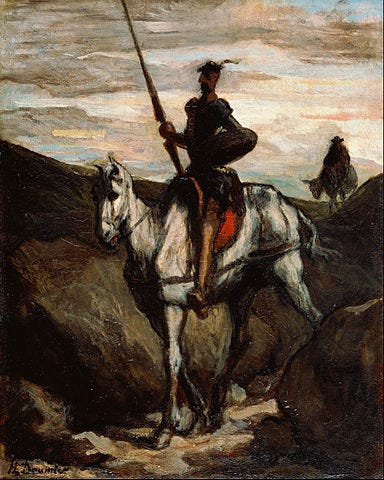
Stay Stuck, and exploit it. Seriously, hear me out.
The Existential Crisis
Creative types and knowledge workers will no doubt have experience with the term “stuck”. They will also likely shudder at its mere mention, or at seeing it in print. Negative connotations abound for this term, and it’s no wonder; it often represents the onset of severe stress and torment. When you’re stuck, you get frustrated, angry — things don’t get done. It is just plain bad.
But let’s not overlook that there is something very existentially important about being “stuck”, even in the narrow sense of writer’s block. In fact, writer’s block is probably the paradigmatic example of being existentially stuck. I mean, here you were, chugging along, typing away, pouring your heart on to the page, and then…screech! You’ve just suddenly stopped. Now you’re not moving — you can’t move, and it leaves you riddled with anxiety.
A helpful way to think about being stuck is this: your existence has a certain momentum and direction. When you are stuck, and don’t know what to write, or how to communicate something, it’s an example of either of the following:
(a) not being in control of your momentum or direction — like a galloping horse over which you have no control, or
(b) momentum has ceased, and your horse trots in place as you are not sure which direction to go. And even if you choose one, you’re not sure if you can start the trot toward it — since you have lost momentum.
But don’t fret. To put a spin on an old, tried and true phrase:
Stuck happens. Deal with it.
Everyone gets stuck from time to time. And as any died-in-the-wool optimist will tell you about failures, the best thing to do with your “stucks” is to use them. Sadly, I don’t see too many people suggesting that. It’s as if some people — by the grace of the creative muses — stand in place for mere seconds being stuck before being once again adorned by that bright light of inspiration and drive. So much the worse for the rest of us. But surely it is not like that. I think the problem is a problem of perception. We tend to think that movement is good, period. We chase momentum because momentum makes us feel like we’re getting somewhere. I think that’s wrong-headed.
Less Speed, More Direction.
I think we who take pride in creating and ideating can get in the habit of paying attention to the wrong things. We get obsessed with keeping up movement, even when we’re not sure where we’re going. But if we can switch our perspective from one aspect of the creative force to the other, perhaps being stuck will not be so bad — in that we can escape it having learned something valuable about ourselves, and about good ideas.
What I mean is this:
I see around me (and within me) a tendency to be obsessed with momentum, as opposed to direction. I see too many people interested in (and writing about) merely moving — and moving quickly — but with little attention paid to the direction of the movement.
On a long view it doesn’t matter how fast you arrive somewhere if it’s not a place worth going.
We should be okay to sit in our “stuck” state and ask ourselves if maybe it isn’t a blessing in disguise. If no overt outside force stopped our momentum and caused us to be stuck, perhaps something within us — that secret part of us that knows deep down who we truly need to be (our Aristotelian “final cause”, perhaps) — is what stopped us. If that is the case, then we truly ignore that at our own peril.
But, if we are really as thoughtful and creative as we pretend to be, we should not ignore our horse as it trots in place upon our becoming “stuck”. What we should be doing is asking what stopped us, and upon finding the answer, learn how to better tackle that opposing force as we begin to ride again.
